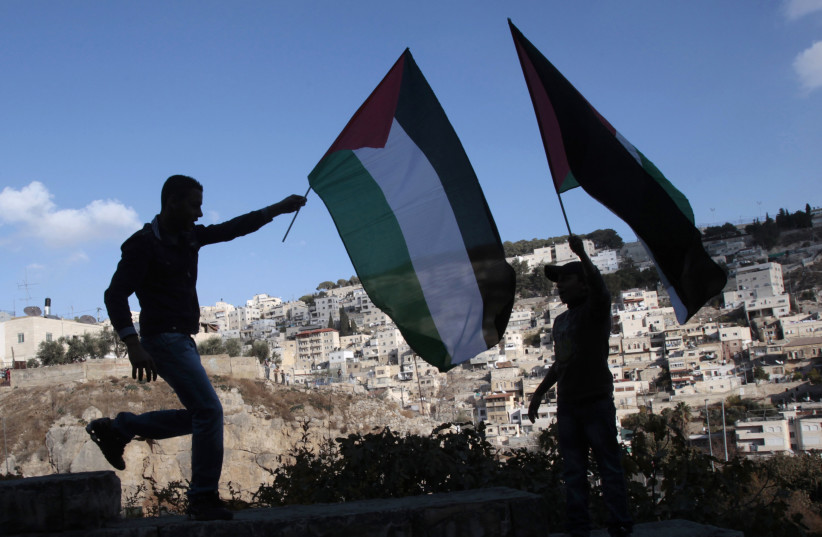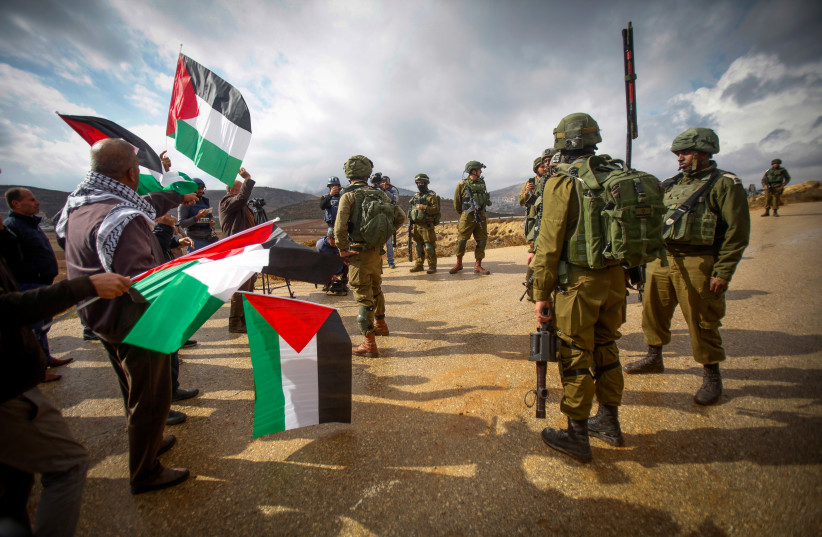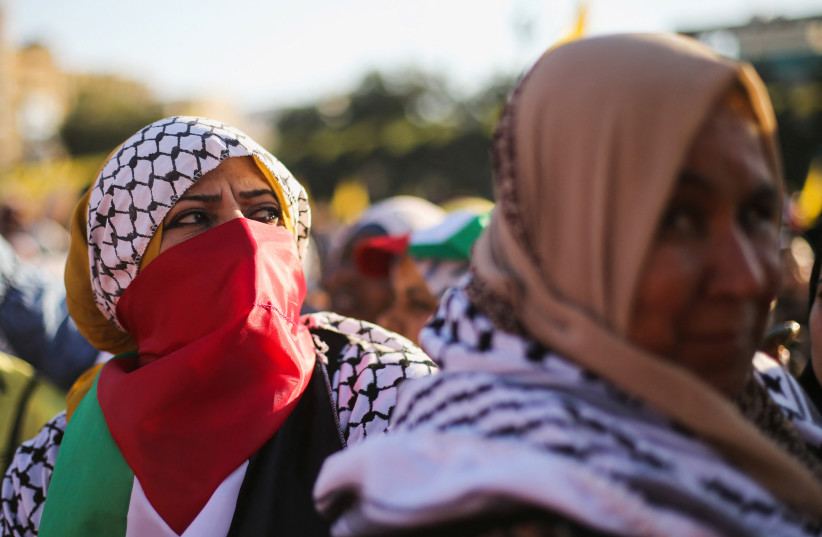Let there be no mistake – the real victims of the Israeli-Palestinian conflict are the Palestinian people. In the contest of victimhood, the Palestinians win. Israelis have a state. The state is strong and wealthy, and received with open arms in most countries of the world that anxiously seek mutually beneficial economic and security relations.
The Israeli narrative, which blames the Palestinians for “never missing an opportunity to miss an opportunity,” is widely accepted, even by many of the Arab countries (leaders and regimes and not necessarily the people) in the region. There have not been serious face-to-face Israeli-Palestinian negotiations since Olmert-Abbas in 2008.
Israeli leaders, from Barak to Netanyahu to Bennett to Lapid, have all repeated the mantra that there is no Palestinian partner with whom to negotiate.
The division of the Palestinian people

The “no partner” mantra has successfully brainwashed the Israeli public, and while they believe that they want peace, they don’t believe that there is someone on the other side who also wants peace. The division of the Palestinian people between Fatah and Hamas, Abbas and Sinwar, West Bank and Gaza has further convinced the Israeli people that there is no Palestinian leader who is serious about recognizing Israel’s right to exist and to live in peace next to Israel.
The Israeli people have been convinced that Mahmoud Abbas and his Palestinian Authority support terrorism, and that the Palestinian leader is a Holocaust denier. The result of the constant lie of no partner for peace was the outcome of Israeli elections in 2022.
The non-existence of a viable peace process with a genuine horizon of hope, coupled with increased Israeli settlement building, settler violence, significantly more house demolitions and evictions from land by the Israeli army have all led to increased Palestinian acts of resistance, (which Israelis call terrorism) mostly against Israeli military personnel and Israeli settlers in the occupied territories.
This is just the prelude to much higher levels of violence which should be expected once Ben-Gvir, Smotrich and Orit Struck take over command of the Civil Administration and COGAT (coordinator of government affairs in the territories). Increased annexation of Palestinian lands, rapid growth in settlement building, authorization of more than 100 unauthorized settlements, and control over the Border Police in the occupied territories will also aggravate the situation further.
Palestinian resistance, in all forms, will be the inevitable outcome. Israeli military response to such resistance will be the use of massive force, which will undoubtedly be called the “appropriate Zionist Response,” and the cycle of violence will leave a lot more blood spilled on the land that both sides claim they love so much.
As a member of the stronger side of this conflict, which is the occupier and not the occupied, I am often told that it is not my place to give advice to the Palestinians. For my entire adult life, I have supported the right of both of these people for self-determination.
I have supported peace based on equality, cooperation, open borders, learning each other’s language and celebrating the diversity that the opportunity of living together provides. I have always been against the Israeli occupation and have actively supported peace negotiations (also as adviser to two Israeli prime ministers on the peace process).
I consider myself a friend of the Palestinian people, and I believe that most Palestinians who know me, think of me as their friend. The relations between the two peoples affects me, as it does every Israeli and every Palestinian, and so I will provide some words of advice to the Palestinian people, and to my own people as well.
Hope for the future

We must all recognize that for the foreseeable future, our governments – both the Israeli and Palestinian governments – will not be speaking to each other directly about how to live in peace. It is therefore the responsibility of civil society, and key public opinion influencers in both societies, to play an active role in speaking above the heads of governments, directly to the people on both sides.
The Israeli government being formed in these days will solidify the creeping annexation of the West Bank into a de facto reality.
THE ONE-STATE binational non-equality reality which has existed for years is indisputable. The occupied territories that the governments of Israel have labeled “disputed territories” are no longer disputed within the Israeli context. There is no viable two states solution which can be negotiated at any time in the coming years.
If the Palestinian people wish to hold onto their decades long dream of self-determination, they are now challenged to put forth a vision which should not only be convincing to themselves, it will also have to persuade the international community of its viability within a geopolitical reality in which the State of Israel continues to exist.
There are still allies for this kind of vision within the dwindling left-wing of Israeli society. There is value in trying to appeal to those Israelis who still cling to the vision of two states for two peoples. I believe that it is important for Palestinians to find ways to assure the Israeli people that they, ultimately, wish to live in peace with Jewish Israelis.
I also believe within the one-state binational reality that the time has come for Palestinians to demand full equality, and even Israeli citizenship. Israel, which calls itself the only democracy in the Middle East, with de facto control over millions of Palestinians in the West Bank and east Jerusalem will need to respond to the call for equality.
Imagine if the Palestinian Authority, or a serious Palestinian civil society initiative, opened a secure website for Palestinians to sign a declaration that they demand to receive full Israeli citizenship. They would sign that they are prepared to live in peace with their Jewish neighbors in a state that would guarantee them full equality, and all of the rights of their Jewish neighbors.
While this would be a full declaration of intent to live in peace, there is no doubt that Israel would define this peaceful action as a declaration of war on the Jewish state. But the Palestinian response should be that it is a declaration of peace to the State of Israel, and to the Israeli people, who must come to terms with the reality of this land being binational with virtually equal numbers demographically.
If the new government of Israel has a better alternative, i.e. one that provides Palestinians with equality, freedom and a chance of prosperity and security, as well as the right of self-determination not within the State of Israel, they had better come up with it quickly.

The writer is a political and social entrepreneur who has dedicated his life to the State of Israel and to peace between Israel and its neighbors. He is now directing The Holy Land Bond.
